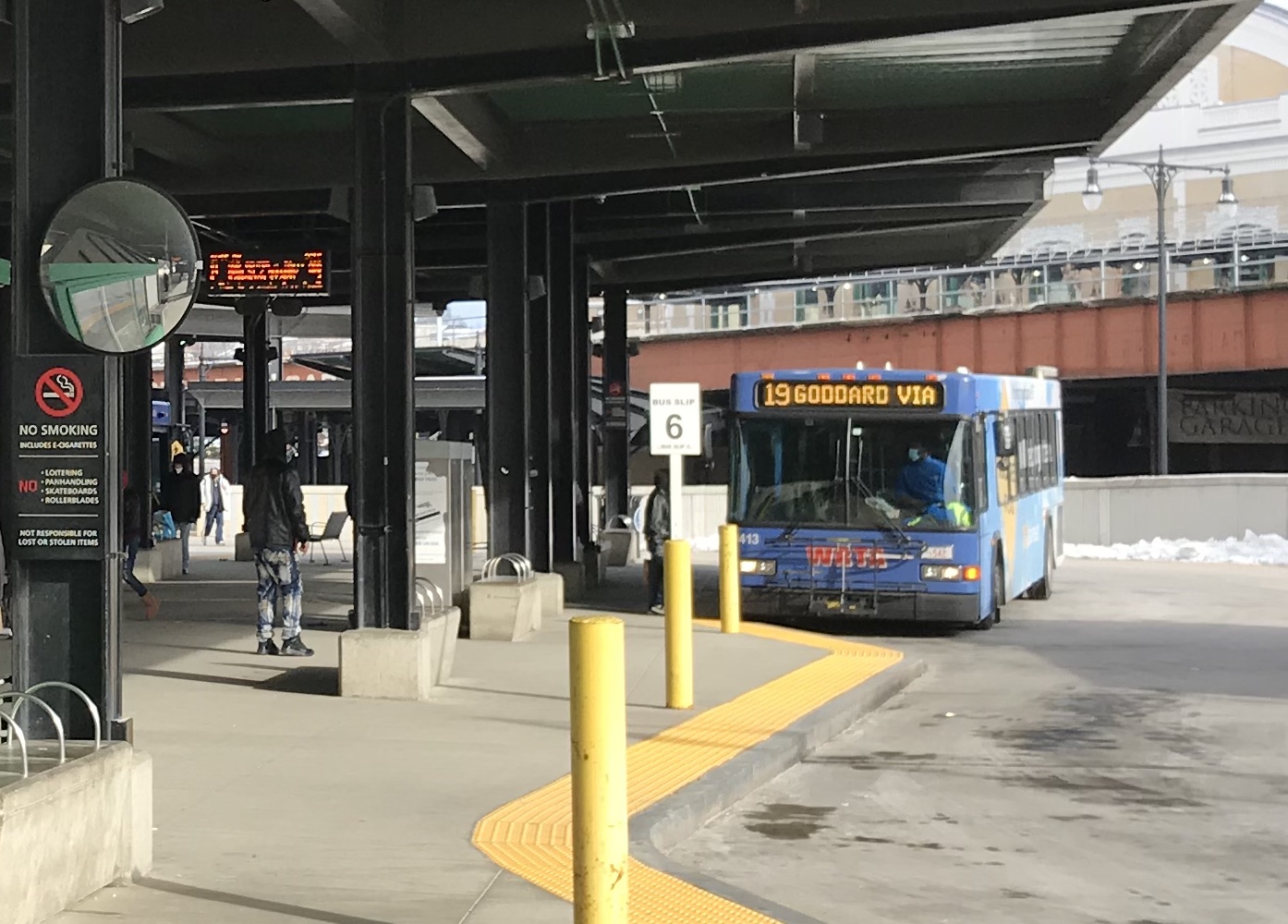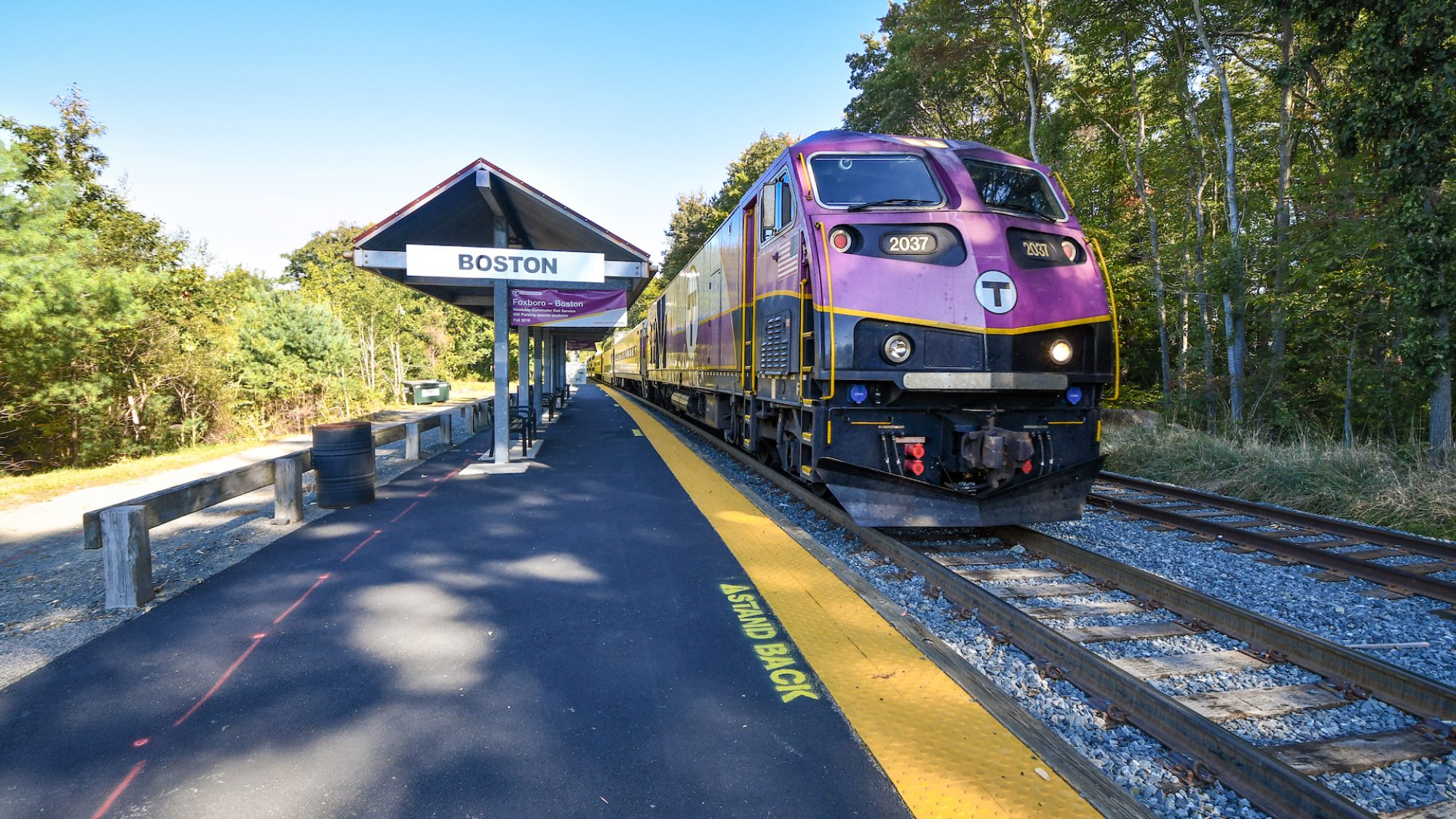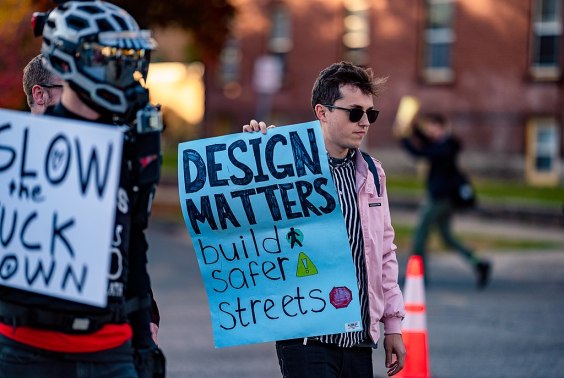On Thursday afternoon, Governor Healey traveled to the John W. Olver Transit Center, the hub of the Franklin Regional Transit Authority in downtown Greenfield, to announce $30 million in state spending to support year-round fare-free bus service at 13 of the state's 15 regional transit agencies.
The funding comes from a $30 million line-item in the fiscal year 2025 state budget to fund "grants for the regional transit authorities to implement year-round systemwide fare-free service."
Regional transit authorities (RTAs) are the public transit agencies that operate outside the MBTA's service area in greater Boston.
"$30 million to 13 regional transit authorities to provide year-round free transit. That's what we're doing," Governor Healey said on Thursday. "It's a big deal."
The grants will reimburse agencies for the revenue that they otherwise would have collected from riders.
Many RTAs had already been operating without collecting fares from riders in the years since the Covid-19 pandemic arrived.
While larger transit agencies like the MBTA have struggled to recover their pre-pandemic ridership levels, RTAs that have embraced fare-free operations have clocked significant gains in ridership.
The Worcester RTA, for instance, which has been operating fare-free since early 2020, served over 4 million fare-free bus trips in 2023, compared to 2.9 million rides in 2019.
Speaking to RTA supporters in Greenfield on Thursday, Gov. Healey said "you've seen the positive impact that affordability has on riders, and the communities that you serve. And that's why public transit is such a priority."
The WRTA and other agencies have been using federal CARES Act pandemic relief funds to balance their budget without fare revenues, but after five years, those federal funds are running low.
The state's fare-free grants range in size from $293,054 for the Cape Ann RTA, to $5.5 million for the Worcester RTA and $9.5 million for the Pioneer Valley RTA, the Commonwealth's biggest regional transit authority.
Two RTAs will not receive funding through this program: the Greater Attleboro and Taunto RTA (GATRA) and the Cape Cod RTA.
GATRA's administration did not respond to our call, but Tom Cahir, administrator of the Cape Cod RTA, told StreetsblogMASS on Thursday evening that his staff decided not to apply for the state's fare-free program funding.
"The fact that it was only for one year was a concern for us," Cahir told StreetsblogMASS. "We didn't want to stop collecting fares, and then tell riders that they have to start paying again a year from now."
He added that their agency already offers some fare-free programs through a smaller state grant.






